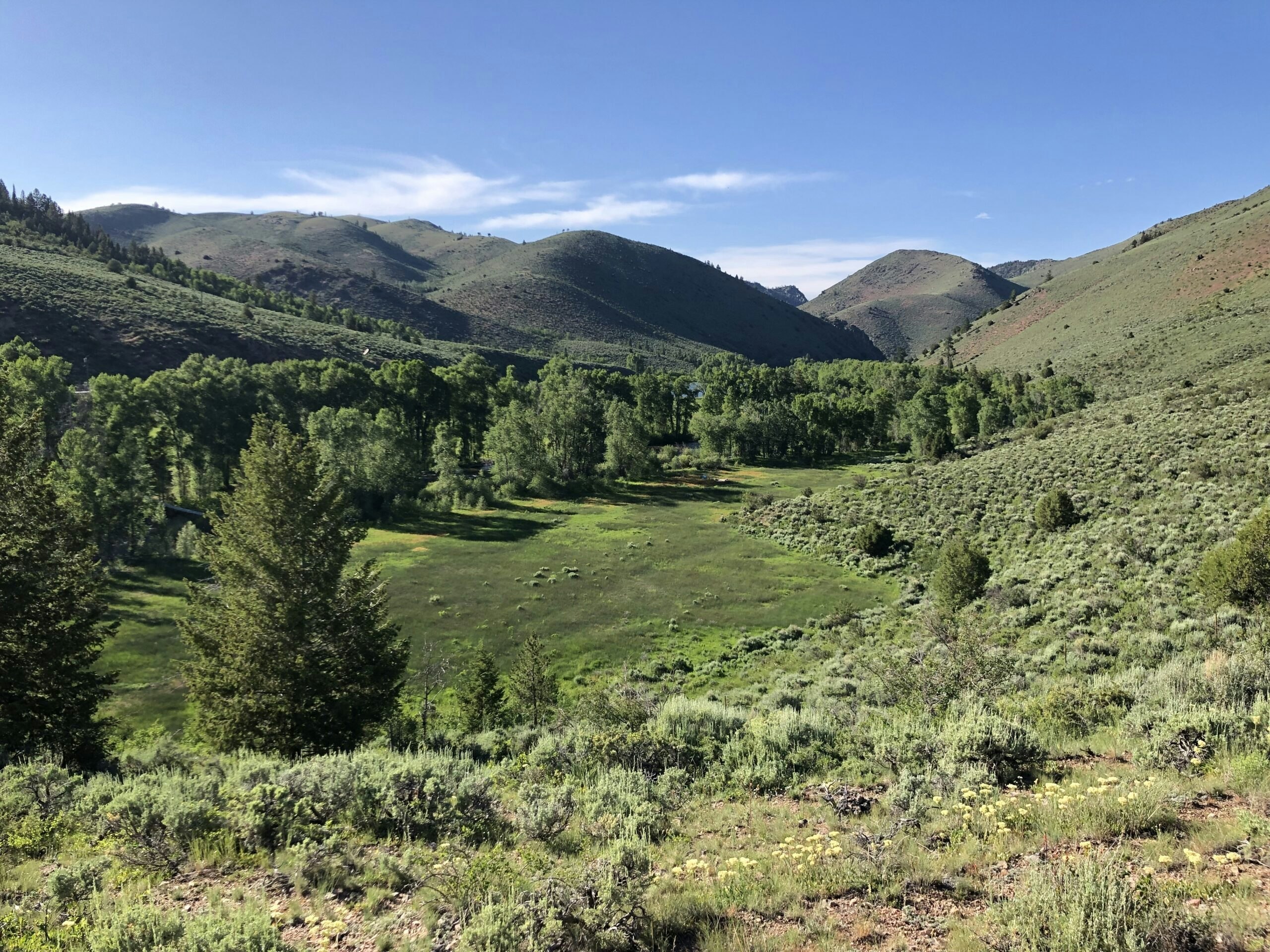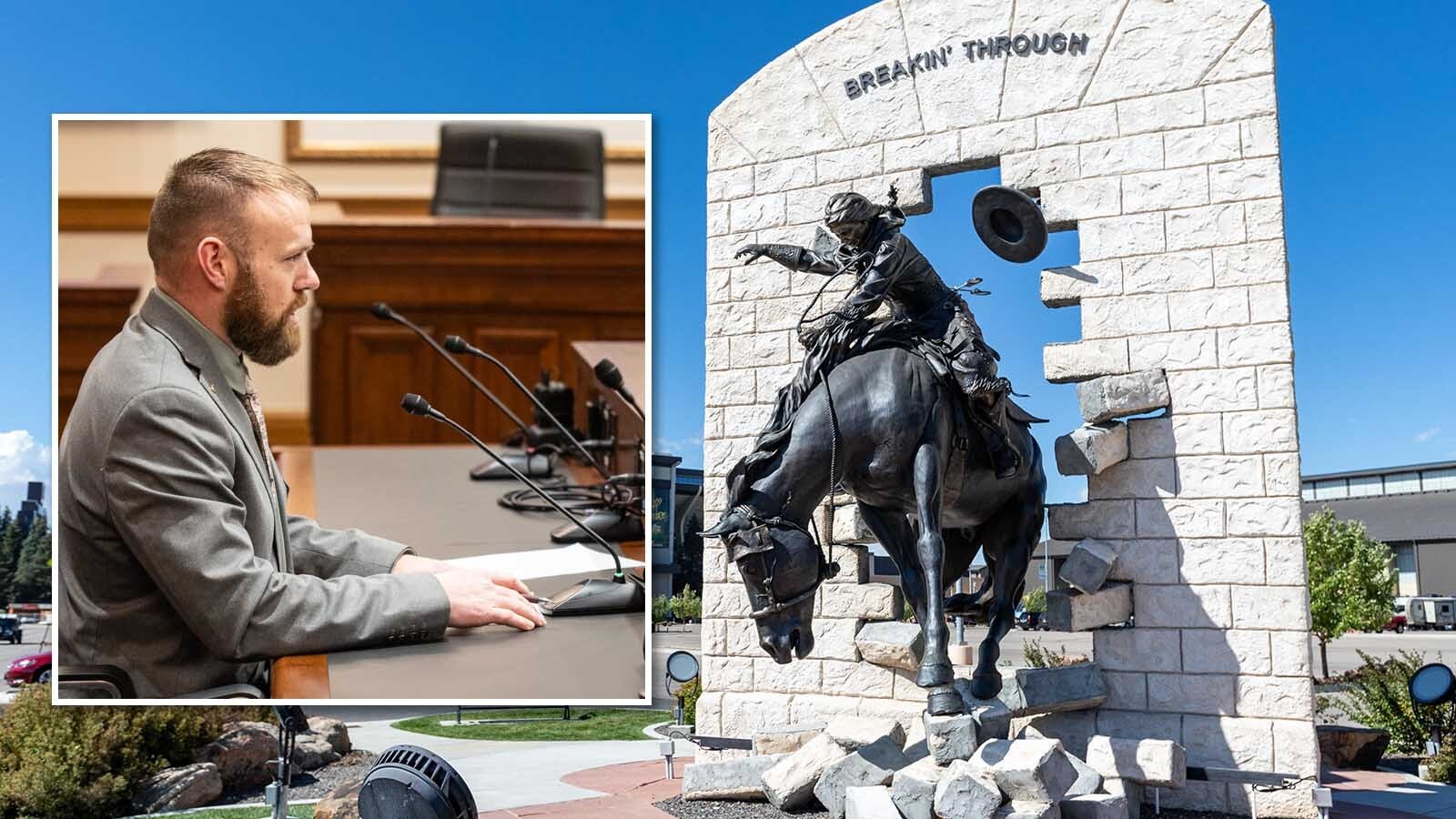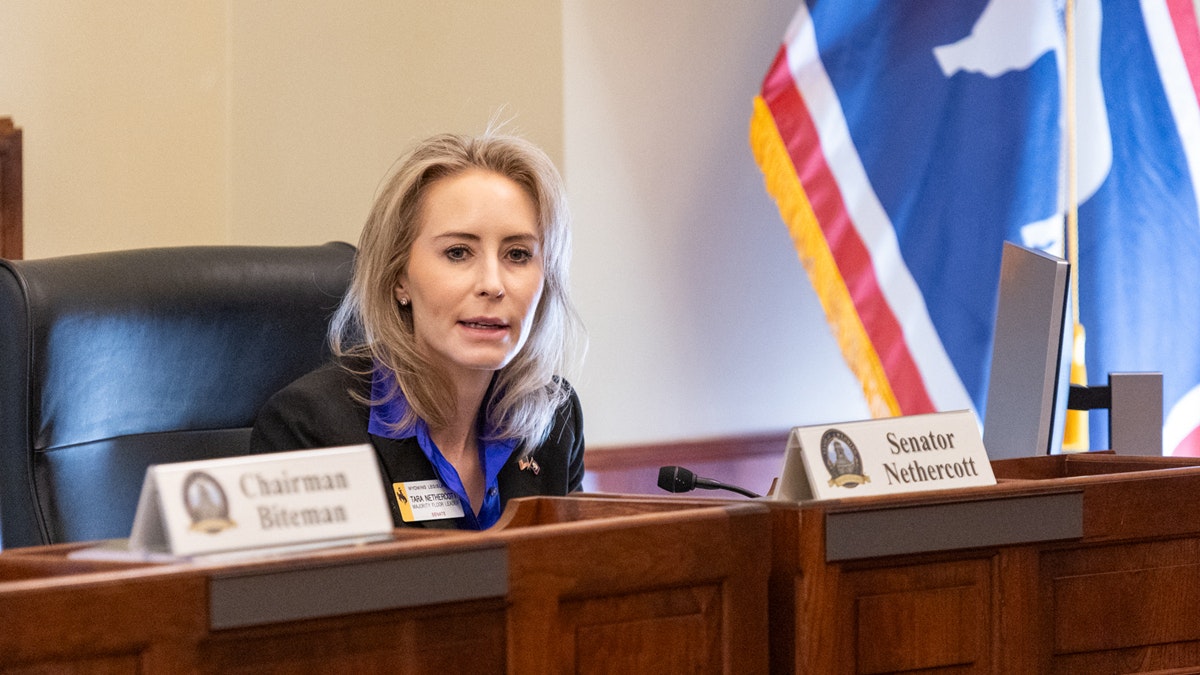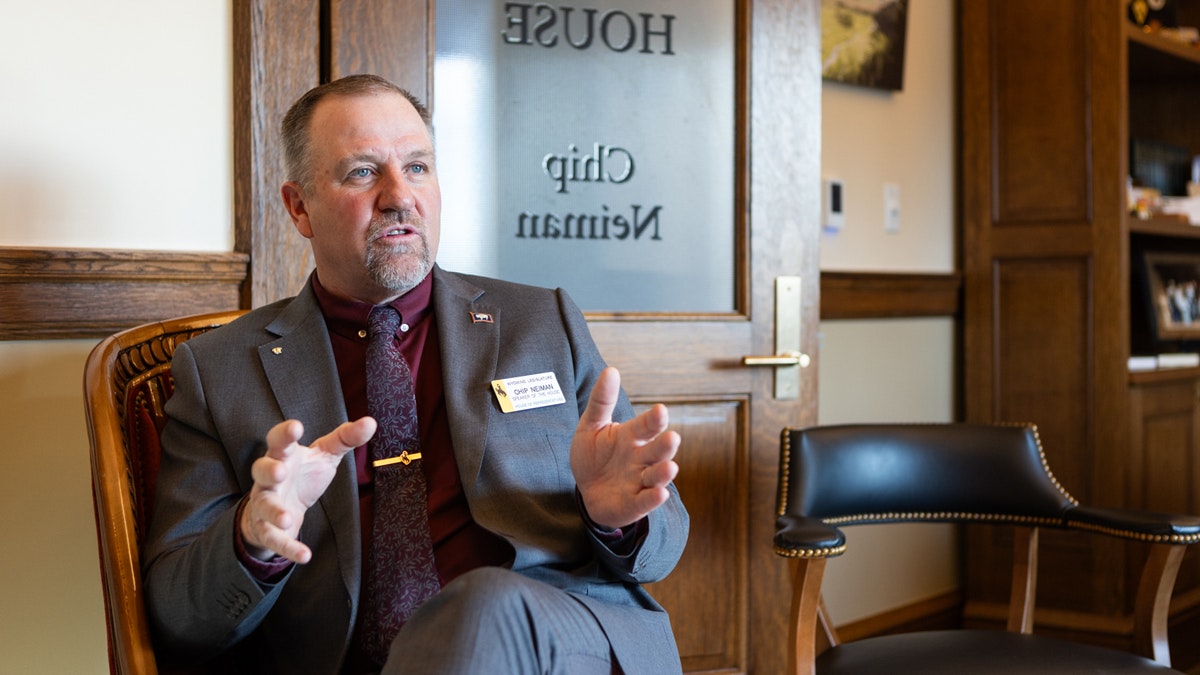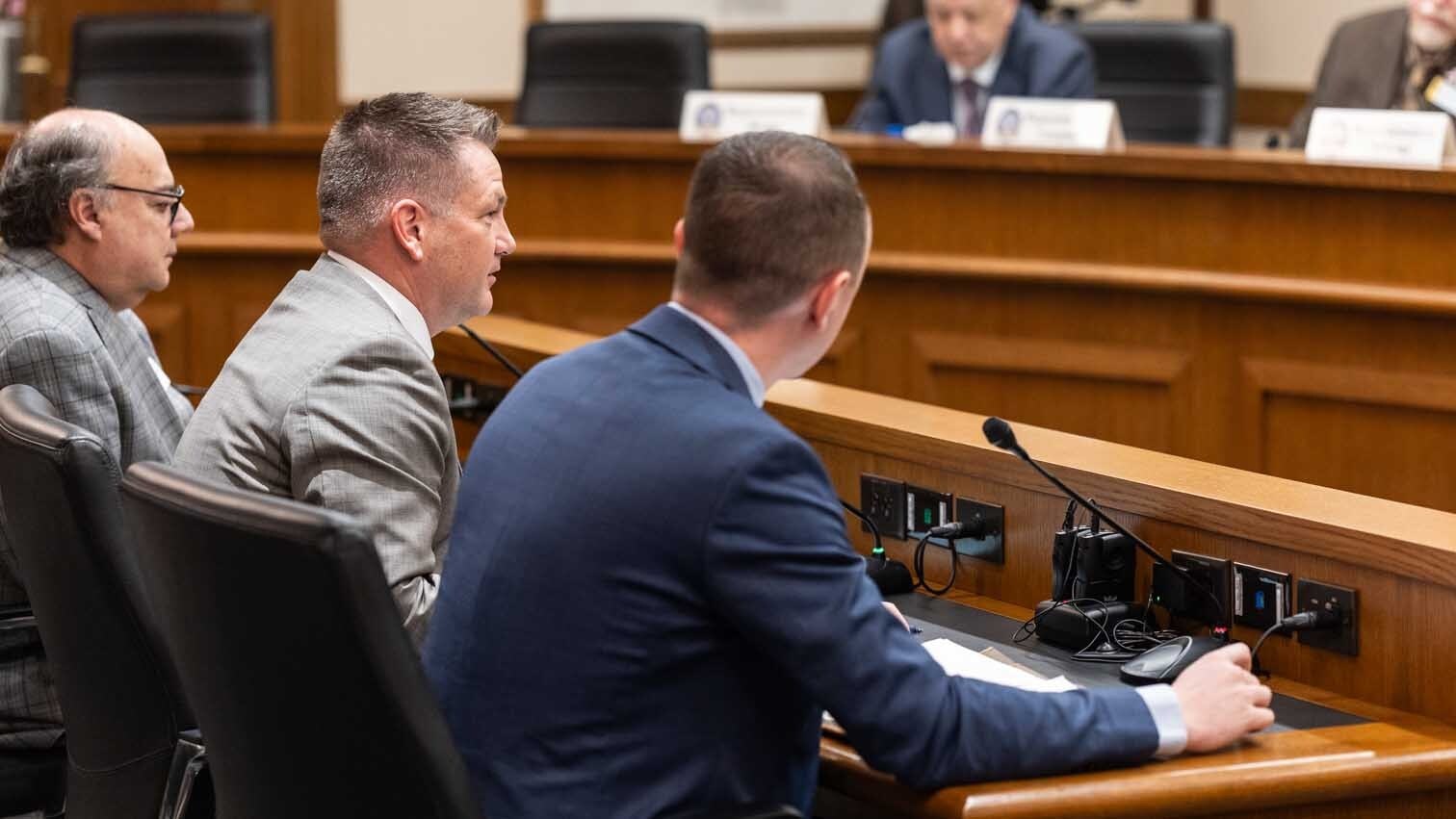To keep Wyoming public schools funded, the scope of use on state trust lands must expand to include such things as affordable housing developments, commercial properties and room for outdoor activities like adventure races, state officials and lawmakers say.
A draft bill that would have implemented those changes and more stalled in an evenly split vote Tuesday before the Legislature’s Joint Revenue Committee.
But the idea is hardly buried, committee members said.
“How do we maximize the job of these state trust lands?” said committee co-chairman Steve Harshman, R-Casper. “The trust lands have a job to do, it’s commanded in the state Constitution.”
Traditional Uses Might Not Be Enough
The management of Wyoming’s state school trust lands is “at a crossroads,” said Jenifer Scoggin, director of the Wyoming Office of State Lands and Investments.
Not long after the establishment of Wyoming and other Western states, trust lands were established as a means for those states to generate money for schools and universities, Scoggin said.
Until now, those lands have generated money for schools primarily through leases for cattle grazing, oil and gas drilling and occasionally timber sales and wind energy development, she said.
And those uses should continue, she said.
“Grazing lease holders have been some of the best stewards of our state trust lands,” Scoggin said. But uses could be expanded to include affordable housing or commercial property developments.
State trust lands are also used for recreation and could boost growing outdoor trends such as adventure racing in Wyoming, Scoggin said. Adventure races involve participants working their way through rough terrain while using their navigation skills to hit waypoints along the courses.
Wyoming has 3.4 million acres of state trust land surface, as well as 3.9 million acres of sub-surface rights for mining or energy development, Scoggin said.
Follow Montana’s Lead?
Commercial and housing development on trust lands has been successful in other Western states, particularly Montana, Jason Crowder, deputy director for the Office of State Lands and Investments, told the committee.
Large retail outlets such as Walmart have been built on some of Montana’s trust lands, generating considerable revenue for schools, he said.
Other new or growing uses could include cellphone towers, he added. Commercial developers pay lease fees just as cattle ranchers or oil drilling companies do.
In some cases, the state could sell subdivisions to housing development lease holders, Crowder said.
Potential Conflicts
That raised the question of whether building developments could drive ranchers with grazing leases off the land.
Development leases are typically only a “subset of a (trust lands) section,” Crowder said.
In cases where they might cut into existing grazing leases, those lease holders could be due compensation for loss of forage, Crowder said. They also could also be compensated for the money and time spend on land improvements, such as building fences for cattle.
In cases where a grazing lease holder didn’t want to consent to proposed changes, the matter could be arbitrated by the State Board of Land Commissioners, he said. That board has say over policy on state trust lands.
Lingering Doubts
Some committee members said they would have voted to forward the draft bill, except for lingering doubts about its present form. Some of those had to do with how building and fire codes would be enforced in developments, or how much say cities and counties would have over developments in their jurisdictions.
Problems arose over wastewater disposal and other concerns during the development of a proposed “glamping” (glamorous camping) site on state trust land in Teton County, said Rep. Mike Yin, D-Jackson.
At first, the county was told the wastewater would be “carted away” from the site, but then developers proposed a leech field, witch many locals opposed, Yin said.
That turned into a matter of lost trust between the county and developers, said Yin, who voted against forwarding the bill.
Both he and Rep. Jim Roscoe, I-Wilson – who also voted no – said legislation will have to be better crafted to address such concerns for cities and counties before they could support it. However, they both said they favor the idea of state trust lands possibly being used to help address Wyoming’s need for affordable housing.
Landowners Need A Voice
And because many state trust lands are surrounded by private property, steps need to be taken to ensrue that ranchers and other landowners have a say, said Jim Magagna, executive vice president of the Wyoming Stock Growers Association.
He said he also is generally in favor of expanding the use of state trust land, so long as protections for landowners are built in to any future legislation.
“There are sections of trust land that are scattered and intermingled with private property,” he said. “When counties do their planning and zoning, landowners can be at the table. What can be done on state land without that planning and zoning can affect what can be done on the surrounding private land, and significantly affect the value of that land.”

